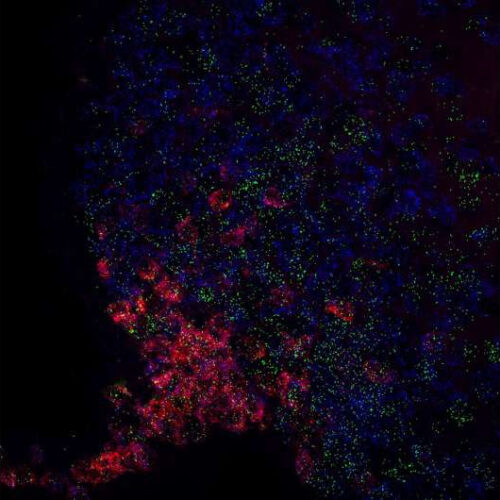by University of Chicago Medical Center Credit: Unsplash/CC0 Public Domain A study led by researchers at the University of Chicago and Indiana University has determined that a protein called elF5A is necessary for driving inflammation in macrophage cells in obesity. Blocking DHPS, the enzyme that modifies and activates elF5A, led to reduced inflammation and improved glucose control in...
Tag: <span>obesity</span>
Study identifies potential target for treating systemic inflammation in obesity
UNIVERSITY OF CHICAGO MEDICAL CENTER A study led by researchers at the University of Chicago and Indiana University has determined that a protein called elF5A is necessary for driving inflammation in macrophage cells in obesity. Blocking DHPS, the enzyme that modifies and activates elF5A, led to reduced inflammation and improved glucose control in mice. The study was...
High fat diets break the body clock in rats, and this might be the underlying cause of obesity
by The Physiological Society Credit: Unsplash/CC0 Public Domain When rats are fed a high fat diet, this disturbs the body clock in their brain that normally controls satiety, leading to over-eating and obesity. That’s according to new research published in The Journal of Physiology. The number of people with obesity has nearly tripled worldwide since 1975. In England...
‘Staggering’ Increase in Global Dementia Cases Predicted by 2050
DENVER ― Around the world, cases of dementia are projected to hit 153 million in 2050, up from around 57 million in 2019, new global prevalence data show. Emma Nichols, MPH “These extreme increases are due largely to demographic trends, including population growth and aging,” study investigator Emma Nichols, MPH, Institute for Health Metrics and...
New study finds therapeutic treatment option for metabolic syndrome, obesity
by Case Western Reserve University Credit: CC0 Public Domain Metabolic syndrome is a cluster of conditions and includes obesity, and can be dangerous as it increases the risk for heart disease, stroke, diabetes and other diseases. In a recent study, published in eLife, researchers at Harrington Discovery Institute at University Hospitals (UH) and Case Western Reserve University have discovered...
Obesity: The role of ‘beige’ fat and cytokines
A recent study provides fresh insight into the role of beige fat in obesity. Luis Velasco/Stocksy A new study in mice may help identify new methods to treat obesity and metabolic disorders in the future. The study revealed the mechanism through which cytokines — immune cell signaling molecules — promote the production of beige fat,...
Cognitive-behavioral approach to treatment of obesity yields significant results
FUNDAÇÃO DE AMPARO À PESQUISA DO ESTADO DE SÃO PAULO IMAGE: THE STUDY SHOWED THAT INTERDISCIPLINARY ACTION FACILITATES WEIGHT LOSS, IMPROVES QUALITY OF LIFE AND EATING BEHAVIOR, AND REDUCES SYMPTOMS OF DEPRESSION. CREDIT: SUZANA MARIA ROSSI TEIXEIRA Quality of life relating to physical and mental health can be a key element in the treatment of...
Scientists propose a rethink of the role of carbs in obesity
New research questions a well-established explanatory model of obesity. Maskot/Getty Images A popular theory asserts that carbohydrates in food cause a spike in insulin, which promotes fat storage and increases appetite, leading to overeating. However, recent research suggests that this “carbohydrate-insulin model” may be an oversimplification. In an article in the journal Science, researchers argue that while low carb, high fat diets...
Researchers find obesity linked to reduced blood flow to the brain
by Trinity College Dublin Credit: CC0 Public Domain A new study from scientists at The Irish Longitudinal Study on Aging (TILDA) at Trinity College Dublin reveals important findings, indicating that being overweight or obese significantly reduces blood flow in the brain. The study also shows that increased physical activity can positively modify, or even negate, this...
Scientists find new point of access for targeting eating disorders and obesity
by Emily Kagey, University of Michigan Melanocortin 3 receptor (MC3R; green), agouti-related protein (AgRP; red), and vesicular GABA transporter (VGAT; blue) mRNA expression in the arcuate nucleus of a mouse. MC3R is coexpressed in a high percentage of both AgRP and VGAT neurons in the arcuate nucleus, a brain region that is known to control feeding...








